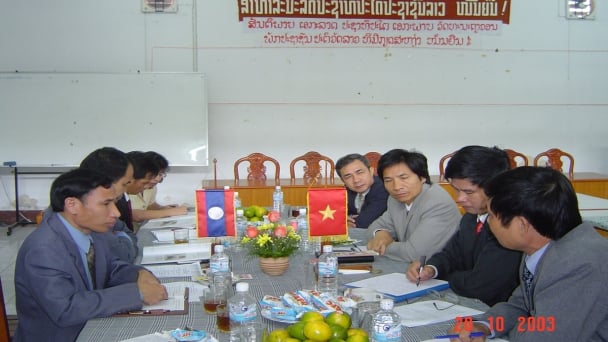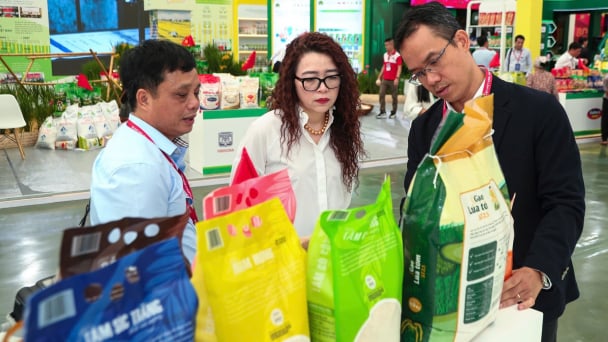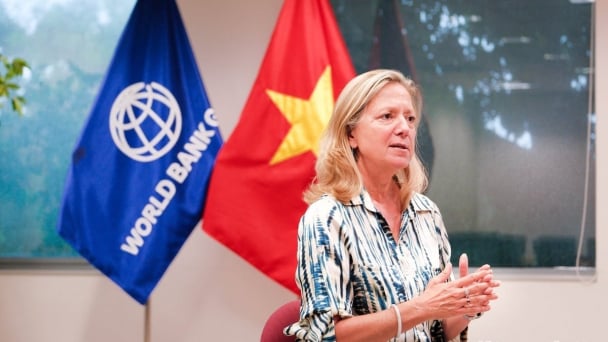September 1, 2025 | 14:03 GMT +7
September 1, 2025 | 14:03 GMT +7
Hotline: 0913.378.918
September 1, 2025 | 14:03 GMT +7
Hotline: 0913.378.918

Farm workers labor in a strawberry field on August 5, 2022 near Ventura, California. The Environmental Protection Agency will continue to allow pesticide chlorpyrifos, which has been linked to developmental harm in children, to be used on 11 crops including strawberries.
Chlorpyrifos is banned in places like the European Union and a handful of U.S. states due to its links to brain damage in children. The insecticide is a type of organophosphate, a class of chemicals that were repurposed as nerve agents by the Germans in World War II.
The EPA attempted to ban chlorpyrifos in 2021 after a federal court ruled the agency must prohibit the chemical or find a way to regulate it. That ban was overturned in 2023 by the U.S. Court of Appeals for the Eighth Circuit, which said the agency didn’t consider whether it could allow some uses of chlorpyrifos to continue.
EPA’s latest restrictions revoke all tolerances for chlorpyrifos, except for exempted crops. Tolerances establish the amount of pesticide allowed on food, and a revocation effectively bans its use.
Still, the announcement is somewhat symbolic. Since 2022, manufacturers have already voluntarily agreed to stop producing chlorpyrifos except for the 11 crops in question.
The 11 crops exempted from the rule made up about 55% of total chlorpyrifos usage on agricultural commodities from 2014 to 2018, prior to the EPA’s first attempt at a ban. However, the EPA also said the new restrictions could decrease the average annual pounds of chlorpyrifos applied in the U.S. by 70% compared to historical usage.
Growers allowed to use chlorpyrifos still face additional restrictions based on their location. The EPA will again review registration for chlorpyrifos in 2026, at which point the agency could again try to ban the chemical or add more restrictions.
Young children prenatally exposed to high levels of chlorpyrifos were significantly more likely to experience cognitive and physical delays, according to studies from Columbia University. The chemical is also linked to Attention-Deficit/Hyperactivity Disorder.
“The newly proposed restrictions are a step forward, but they fall short of fully protecting children, farmworkers, and our food supply,” Patti Goldman, attorney at Earthjustice, said in a statement. “Unless the EPA acts quickly to finalize proposed food bans on chlorpyrifos and other organophosphates, it will leave children without desperately needed protections.”
agriculturedive

(VAN) Over 80 years of development, Vietnam’s geological sector has achieved numerous milestones, with international cooperation standing out as a driving force that has helped the industry secure its position regionally and globally.

(VAN) Vinod Ahuja, FAO Representative in Viet Nam, affirms that Vietnam's success lies not only in its abundant national reserves but also in increasingly diversified value chains and enhanced competitiveness.

(VAN) Vietnamese engineers have mastered technology, successfully manufacturing an automatic system for environmental agricultural monitoring and measurement, aiming at the dream of 'robotization'.

(VAN) Over the past 80 years, the food sector has walked alongside the nation, from shared jars of rice during the resistance to ships carrying Vietnamese rice brands across the five continents.

(VAN) Vietnam’s geology sector has marked its presence through achievements in mineral surveying and exploration, affirming the country’s resource potential and contributing to sustainable development.

(VAN) The Viet Nam Institute of Meteorology, Hydrology and Climate Change Director shares insights on 80 years of the sector’s achievements, its role in disaster forecasting, and messages for the younger generation.

(VAN) VAN News cordially introduces the message from Mariam J. Sherman - World Bank Division Director for Viet Nam, Cambodia and Laos - about the Viet Nam's 80-year journey of development.